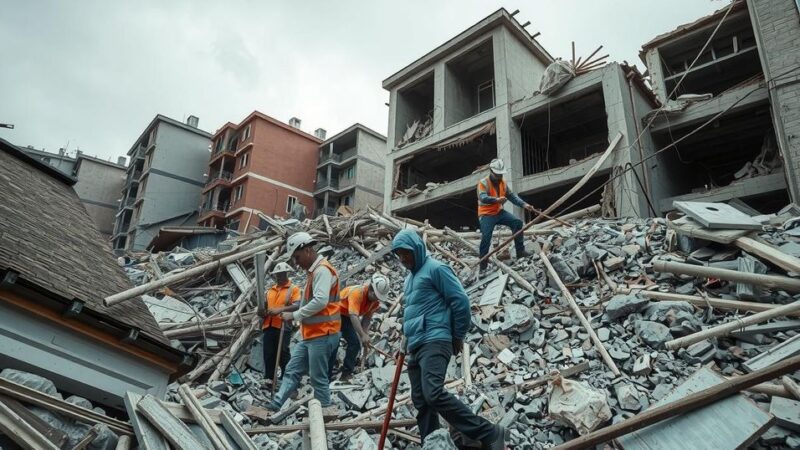In 2024, the UN’s WMO reported over 150 unprecedented climate disasters, including record heatwaves, floods, and storms, resulting in the displacement of 800,000 individuals. This year has been the hottest on record, emphasizing the urgent need for immediate climate action. Experts call for renewed focus on renewable energy and better climate resilience measures to mitigate future impacts of climate change.
The year 2024 has seen significant and unparalleled climate disasters, as reported by the UN’s World Meteorological Organization (WMO). Numerous extreme weather events, including severe heatwaves, torrential floods, and destructive storms, have characterized the year, making it the hottest on record. The devastation resulted in the displacement of over 800,000 individuals, marking the highest annual rate since 2008.
The WMO identified 151 unprecedented extreme weather occurrences in 2024, indicating that these phenomena surpassed any prior records in their respective regions. For instance, heatwaves in Japan resulted in widespread cases of heatstroke, while excessively high temperatures were noted, such as 49.9°C in Carnarvon, Western Australia, and 49.7°C in Tabas, Iran. Extreme rainfall caused catastrophic outcomes in various countries, leading to extensive flooding and property damage.
Moreover, storms were intensified by global heating in 2024, with the Philippines experiencing an extraordinary six typhoons within a single month. Hurricane Helene in Florida was noted as the most powerful hurricane to impact the Big Bend region, and Super Typhoon Yagi affected approximately 3.6 million individuals in Vietnam. The potential existence of additional, unrecorded unprecedented events remains a concern.
The WMO report highlights an alarming trend: all ten of the hottest years on record have occurred within the last decade. Despite this, global carbon emissions continue to rise, leading to amplified adverse effects from climate change. Experts have criticized political decisions that compromise climate science and preparedness, particularly referencing actions taken during the Trump administration.
UN Secretary-General António Guterres emphasized the need for leaders to adopt renewable energy solutions and create new national climate plans in response to the escalating challenges posed by climate change. In addition, climate experts warned that each passing year brings humanity closer to unprecedented climatic conditions, stressing the importance of immediate action.
Research indicates that severe climate events such as heatwaves and storms have become both more frequent and intense due to global warming. Experts like Dr. Brenda Ekwurzel and Prof. Stefan Rahmstorf have condemned actions that suppress climate discourse, underscoring the urgency for world leaders to take impactful measures against climate change.
Prof. Celeste Saulo, WMO Secretary-General, called for stronger efforts in enhancing early warning systems for extreme weather, asserting that rapid changes are necessary for societal resilience. It remains imperative to invest in climate services to mitigate severe weather impacts effectively.
In summary, the WMO’s findings serve as a stark reminder of the escalating impacts of climate change globally. With 2024 marking unprecedented climate disasters, immediate actions and effective policies are crucial to safeguard humanity’s future against impending climatic challenges.
In conclusion, the WMO report for 2024 reveals alarming statistics regarding unprecedented climate disasters, highlighting a significant rise in extreme weather events. The displacement of individuals, remarkable heatwaves, and destructive storms underscore the urgent need for global awareness and action. As experts continue to call for climate initiatives and improved resilience measures, it is critical for world leaders to prioritize renewable energy solutions and bolster environmental protections. The consequences of inaction could lead to even more severe impacts in the future.
Original Source: www.theguardian.com






